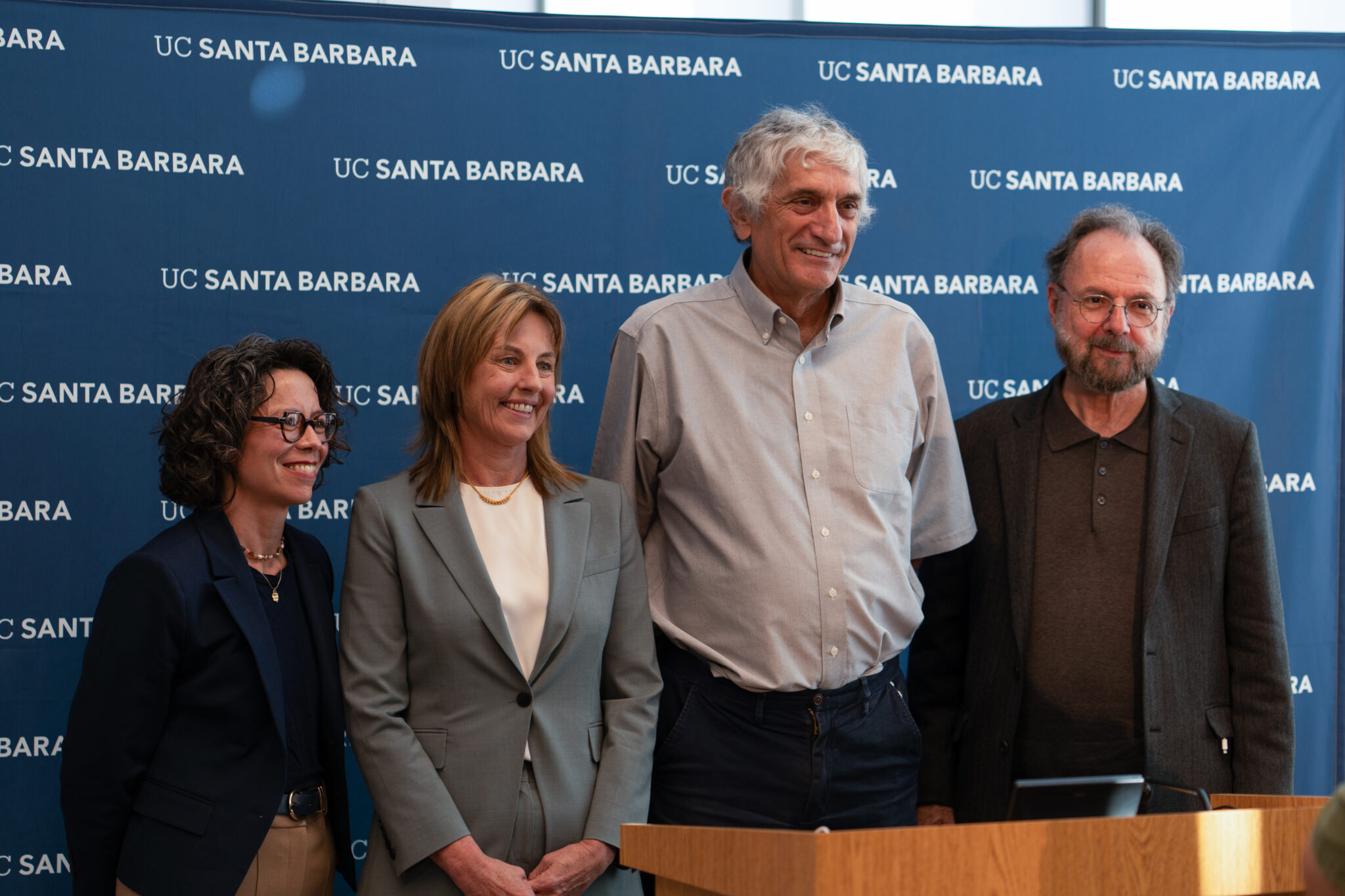UC Santa Barbara physics professor emeritus John Martinis and UC Santa Barbara physics professor Michel Devoret, along with UC Berkeley physics professor John Clarke, were awarded the 2025 Nobel Prize in physics for their work that demonstrated that quantum mechanics can be made concrete on a macroscopic scale.

UCSB physics professors John Martinis and Michel Devoret were awarded the 2025 Nobel Prize in physics for their work in quantum mechanics. Shengyu Zhang / Daily Nexus
On Oct. 7, the University held a press conference to honor the Nobel winners in which Martinis explained his research.
Martinis received both his bachelor’s degree and doctorate in physics from UC Berkeley in 1980 and 1987, respectively. During his time as a graduate student, he conducted a series of experiments with Devoret and Clarke involving an electronic circuit built of superconductors.
Born in Paris, Devoret graduated as a telecommunications engineer from Télécom Paris in 1975, then received both his graduate degree in quantum optics and doctorate in condensed matter physics in 1982 from the University of Orsay, now called Paris-Saclay University. He currently works as the Chief Scientist of Quantum Hardware at Google Quantum Artificial Intelligence.
According to the Royal Swedish Academy of Sciences, their work has laid the foundation for “developing the next generation of quantum technology, including quantum cryptography, quantum computers, and quantum sensors.”
Martinis expressed his gratitude for being able to build on his work as a graduate student over several decades.
“It’s been something I’ve done my whole career. It’s been a real pleasure to just keep building on something that we thought about very carefully back in the mid-1980s and keep working on that and building it better and better,” Martinis said.
Going forward, Martinis wants to expand on his research and said his “professional dream” is building a quantum computer that harnesses the laws of quantum mechanics that can potentially solve problems too complex for classical computers.
Throughout the day, Martinis said he received countless emails and congratulatory phone calls from colleagues and faculty, but said the best part of his day was hearing from former students who had been inspired by his research.
In a letter from UCSB Chancellor Dennis Assanis, read by Executive Vice Chancellor and Provost David Marshall, he congratulated the Nobel laureates and emphasized their importance to the University’s legacy of innovation.
“As our campus’s seventh and eighth Nobel laureates, you are part of a tremendous legacy here at UC Santa Barbara and a proud culture of interdisciplinary collaboration, innovation and excellence that has been built over decades,” Marshall said.
Marshall highlighted their achievement as a testament to the importance of research universities. He emphasized that scientific research is an investment in the future of greater findings.
“It begins with discovery, with enterprise, with experiment, with curiosity, with a desire to figure things out, to solve problems, and only years later do we see the tremendous transformation of society and the improvement of people’s lives. But it’s only by the investment in science that we ever get those results,” Marshall said.
A version of this article appeared on p. 1 of the Oct. 16, 2025 print edition of the Daily Nexus.





















Mean while back at 1600 Pittsburg Ave the orange republitard is crying because the he did’nt win the pulitzer prize for handing Gazza over to Isreal. What an idoit that fashist is and today us proud democrats march together in protest agianst this FoxNews watching redneck that think’s hes a king. VOTE DEMOCRAT